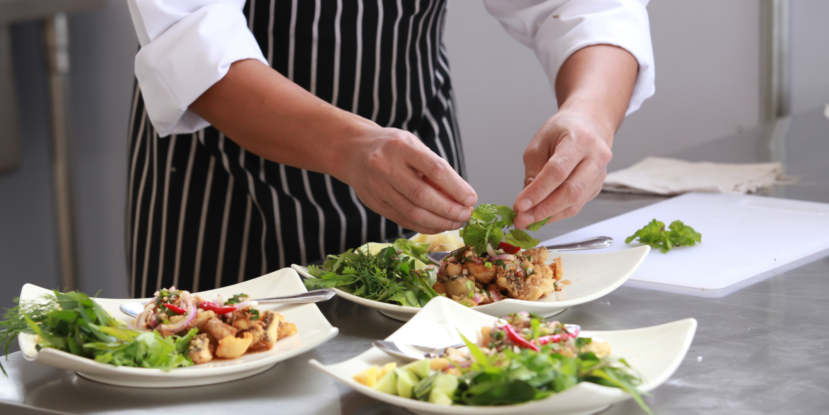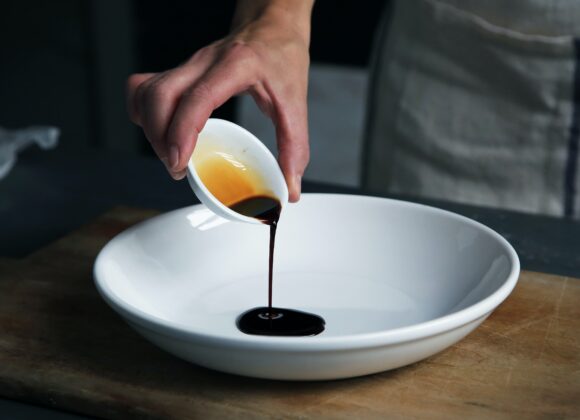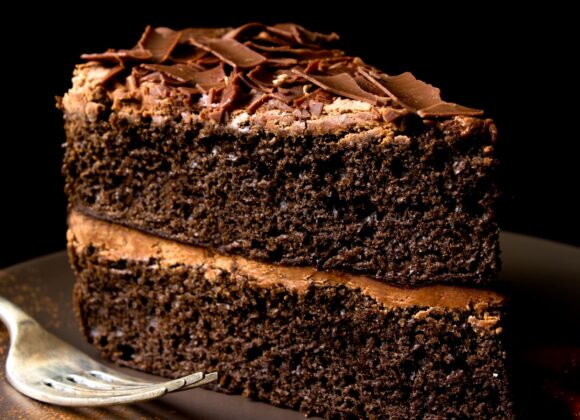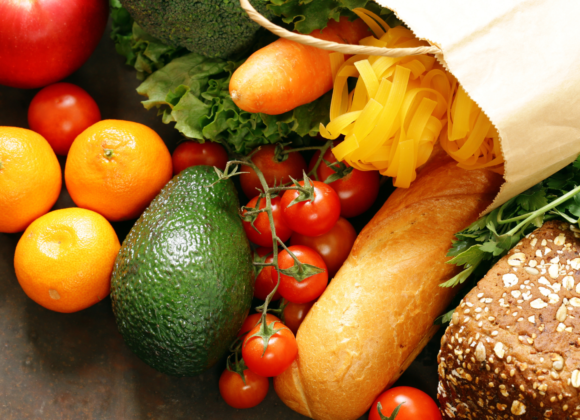„Masz super ciekawy zawód”, „Ty to głodny w pracy nie chodzisz”, „Oooo, ale Ci zazdroszczę tej pracy, możesz próbować tak wielu rzeczy”, „Rodzina to ma z Tobą dobrze, bo pewnie ciągle gotujesz” – takie i inne stwierdzenia to w moim życiu to standard.
Wielu moim znajomym oraz ludziom których poznaję, zawód kucharza kojarzy ze scenami z różnych filmów lub programów kulinarnych. Nie zawsze jest tak kolorowo, jak to przedstawiają filmy. Zawód kucharza to jeden z nielicznych zawodów, gdzie rzadko istnieją określenia takie jak „etat”, „urlop”, „normowany czas pracy”. Pamiętam takie czasy, gdy nawet o umowę zlecenie było ciężko, nie mówiąc już o umowie o pracę. Ale mimo takich złych stron, jest to również jeden z fajniejszych zawodów i nie żałuję, że poszedłem taką ścieżką.
W ciągu mojego życia zawodowego trafiałem na wielu bardzo dobrych szefów kuchni, kucharzy, cukierników, ale również na takich, o których wyczynach chciałbym zapomnieć. Ja zawsze dzieliłem ich na tych którzy mieli za główny cel postawioną jakość i tych którzy mówili, że „jakoś to będzie”.
Od zawsze ciągnęło mnie do tych pierwszych i starałem się kłaść nacisk na to, aby moja praca była jak najbardziej jakościowa. I to nie chodzi wyłącznie o to, żeby używać mega drogich produktów i je podawać gościom, ale o całą otoczkę gotowania i organizacji pracy. Bo czym byłaby kuchnia serwująca homary z kawiorem, w której sprzątane jest raz na jakiś czas?
Sukcesy w gastronomii, to nie tylko gotowanie. Jest bardzo dużo cech i umiejętności, które warto posiadać, aby być traktowanym z szacunkiem wśród kucharzy.
Myślę, że należy zacząć od pasji i zaangażowania, bo bez tego nie widzę żadnej przyszłości w tym fachu. To właśnie te dwie rzeczy pchają do ciągłego doskonalenia się, kształcenia, eksperymentowania z nowymi daniami, produktami, technikami. To właśnie dzięki nim jesteśmy w stanie dążyć do doskonałości.
Kolejnym bardzo ważnym aspektem, który ułatwia start w tej branży jest odpowiednia edukacja. Owszem znam wielu kucharzy, którzy po prostu lubili gotować i zaczęli to robić zawodowo. Jednakże jestem tego zdania, iż dobra szkoła gastronomiczna może zbudować solidne podstawy w zakresie towaroznawstwa, technik kulinarnych czy zarządzania. Ze swojego doświadczenia wiem, że najwięcej umiejętności zdobywa się w trakcie praktyki. Zdobywane doświadczenie w różnych rodzajach kuchni, od małych restauracji po hotele, pozwala poszerzać horyzonty i uczyć się zarówno gotowania jak i odnajdywania w różnym środowisku.
Najlepsi szefowie kuchni nie ograniczają się do odtwarzania tradycyjnych przepisów, ale interpretują je i modyfikują na swój sposób. Kreatywność w kuchni to jedna z ważniejszych cech. Oczywiście można być świetnym kucharzem, robiąc tradycyjną kuchnię danego narodu. Jednak żyjemy w takich czasach, gdzie nie ma miejsca na nudę i sztampę w menu. W celu zachęcenia gości do odwiedzin, restauracje prześcigają się w wymyślaniu coraz to ciekawszych dań czy deserów – kreatywni szefowie kuchni mają szansę na adaptację do zmieniających się trendów i potrzeb klientów. Dobrym przykładem były lockdowny, w których szefowie kuchni często musieli zmienić swoje menu, aby dostosować je do dostaw, lub wręcz przerabiali oni swoje dania w taki sposób, że konsument dostawał cały zestaw produktów z instrukcją przygotowania w formie filmu.
Przechodzimy do cech które uważam za takie, których goście nie dostrzegają. Chodzi tu o organizację pracy i zarządzanie zespołem. Kuchnia to miejsce, gdzie chaos może zapanować w każdej chwili. Dobrzy szefowie kuchni to mistrzowie organizacji, planowania, logistyki. Goście zazwyczaj nie widzą tego, co się dzieje na kuchni. Szef kuchni jest niczym dyrygent. Musi wiedzieć w którym momencie, dany kucharz musi wykonać odpowiednią czynność, aby cała kuchnia grała jak najlepsze skrzypce. Dania bardzo często składają się z kilku elementów, których przygotowanie zajmuje bardzo różną ilość czasu. Jeśli jeden z kucharzy za późno weźmie się za smażenie steka, a drugi za wcześnie zagrzeje dodatki do niego, spowoduje to swojego rodzaju korek w wydawaniu dań i goście będą musieli dłużej czekać, lub np. dodatki się rozgotują, co spowoduje straty produktów. Każde zamówienie w głowie szefa kuchni jest analizowane i wrzucone w odpowiednie tryby, aby zadziałało. Tego się trzeba uczyć latami.
Dobra organizacja to również porządek w kuchni. Pamiętam mój staż w Kopenhadze, gdzie byłem pod wielkim wrażeniem czystości w kuchni. Sprzątaliśmy ją 2 razy dziennie – po lunchu i po kolacji. Warto było mieć wodoodporne buty, bo to nie było zwykłe zamiatanie i przetarcie blatu – to było szorowanie na błysk w 14 osób… Po takim sprzątaniu szef przychodził i sprawdzał czy na pewno o wszystkim pamiętaliśmy. Bardzo mi to imponowało, bo wiem jaki to komfort pracować w czystej kuchni. Niestety znam wielu kucharzy, którzy o to nie dbają …
Jedną z ostatnich, ale nie mniej ważnych cech jest wytrwałość. Nie oszukujmy się, to nie jest łatwy zawód. Zdarzało mi się pracować po 300 godzin w miesiącu, bo ktoś nawalił, zwolnił się, albo przestał pojawiać w pracy. Zapomnij o wolnych weekendach, świętach czy super długich urlopach. Oczywiście to wszystko zależy od miejsca pracy. Jednak zazwyczaj restauracje są otwarte w tym czasie gdy ludzie z innych branży odpoczywają. Do tego dochodzą takie aspekty jak tempo, stresująca atmosfera czy wysokie temperatury. Nieliczne kuchnie w restauracjach mają klimatyzację. A nawet jeśli ją mają, to ona i tak nie wyrabia. Zdarzało się, że pracując w kuchni gorącej, przebywałem 12-14 godzin w temperaturze sięgającej 40-45 stopni.
Aby odnieść sukces w zawodzie kucharza potrzeba ogromu ciężkiej pracy i nieustannej chęci do doskonalenia się. Doskonały szef kuchni oprócz tego co wymieniłem, wcześniej musi być również złotą rączką, psychologiem, mentorem, matematykiem, a przede wszystkim dobrym, słuchającym swoich podwładnych człowiekiem.










 Młodszy specjalista ds. komunikacji marketingowej i PR.
Młodszy specjalista ds. komunikacji marketingowej i PR.


 Absolwent Uniwersytetu Warszawskiego oraz Szkoły Głównej Gospodarstwa Wiejskiego. W branży HoReCa od ponad 10 lat. Przez lata związany z Grupą Trip, Sobienie Królewskie Golf and Country Club oraz restauracją Florentin w Warszawe.
Absolwent Uniwersytetu Warszawskiego oraz Szkoły Głównej Gospodarstwa Wiejskiego. W branży HoReCa od ponad 10 lat. Przez lata związany z Grupą Trip, Sobienie Królewskie Golf and Country Club oraz restauracją Florentin w Warszawe. Absolwentka Wydziału Architektury Politechniki Warszawskiej na kierunku Architecture for Society of Knowledge oraz Komunikacji Wizualnej na Politecnico di Milano. Specjalistka od budowania nastroju. Doświadczenie zdobywała w kraju i zagranicą podczas licznych warsztatów międzynarodowych (Sevilla, Lizbona, Florencja), stypendium na La Sapienza (Rzym) oraz pracując m.in. w Carmi e Ubertis i ADM Milano.
Absolwentka Wydziału Architektury Politechniki Warszawskiej na kierunku Architecture for Society of Knowledge oraz Komunikacji Wizualnej na Politecnico di Milano. Specjalistka od budowania nastroju. Doświadczenie zdobywała w kraju i zagranicą podczas licznych warsztatów międzynarodowych (Sevilla, Lizbona, Florencja), stypendium na La Sapienza (Rzym) oraz pracując m.in. w Carmi e Ubertis i ADM Milano.








 Menedżer z wieloletnim doświadczeniem w branżach kosmetycznej, spożywczej, dziecięcej. W trakcie swojej kariery związany z firmami takimi jak: L’Oreal, Samsung, Danone-Nutricia, Unilever. W ciągu swojego życia zawodowego odpowiadał między innymi za rozwój sprzedaży i contentu eCommerce w Polsce i krajach Europy Środkowo-Wschodniej.
Menedżer z wieloletnim doświadczeniem w branżach kosmetycznej, spożywczej, dziecięcej. W trakcie swojej kariery związany z firmami takimi jak: L’Oreal, Samsung, Danone-Nutricia, Unilever. W ciągu swojego życia zawodowego odpowiadał między innymi za rozwój sprzedaży i contentu eCommerce w Polsce i krajach Europy Środkowo-Wschodniej. 

























































